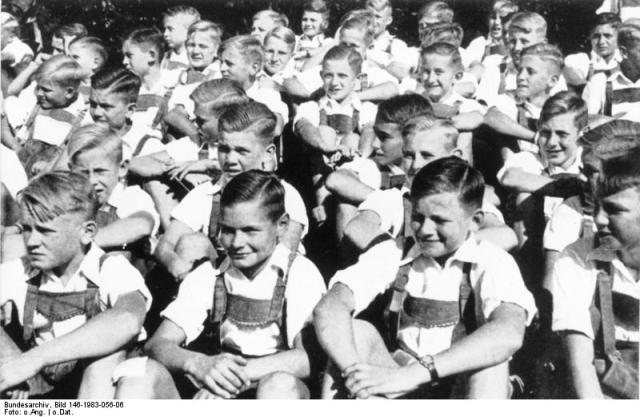“Accused not of crimes they have committed, but of crimes they will commit. It is asserted that these men, if allowed to remain free, will at some future time commit felonies.”
From “The Minority Report” by Philip K. Dick
In the science fiction short story “The Minority Report” by Philip K. Dick, mutant “precogs” are able to see one to two weeks into the future. Their precognitive prophecies are decoded and analyzed by a computer, and used by the Precrime police unit pre-emptively arrest would-be perpetrators before they commit crimes. The story proposes the existence of multiple time-lines and futures, which explains why crimes can indeed be averted because the pre-emptive arrest leads to a shift in the time path towards an alternate future in which the crime does not place. But the story raises the fundamental question of how a person can be arrested and imprisoned for a crime that was not committed, if indeed the alternate future begins upon his arrest. The dilemma of pre-emptive arrests is one of the many questions pondered by the Austrian philosopher Armen Avanessian in his most recent book “Miamification”.

“Miamification” is basically a journal written during Avanessian’s two week stint as an artist-in-residence in the city of Miami during the fall of 2016, just weeks before the election of Donald Trump as president of the United States. Each chapter of the book represents one day of his stay in Miami, containing musings on so many topics that it feels more like a bricolage than a collection of traditional philosophical essays. The stream-of-consciousness style of writing is filled with several digressions and side-notes. This reflects the journal-like nature of the book but it perhaps also mirrors how we peruse online texts on the web with various levels of links to other webpages as well as the snappy phrases and soundbites that we encounter during social media conversations. The book cover of the German edition lists several of the topics Avanessian ruminates about: Trump, Big Data, Beach, Pre-emptive Personality, Make American Great Again, Immigration, Climate Change, Time Complex, Post-Capitalism, Post-Internet, Recursion, Déjà-vus, Algorithms – just to name a few.
Obviously, none of these topics are exhaustively discussed in this short book, and some readers may struggle with the Ideenüberflutung (idea flooding) in each chapter. But each short chapter provides the reader with the lingering pleasure of having continuous food for thought and questions to ponder for weeks to come. Even though the chapters are not thematically structured, common themes do emerge. “The Disappearance of the Subject” is one such theme that was recently discussed in a brilliant essay by Adrian Nathan West. Another central theme is that of temporal discordance.
“Miamification” begins with physical and biological manifestations of temporal discordance, one that many who have traveled across time zones can easily relate to. Avanessian experiences jet-lag after flying from Berlin to Miami but his jet lag is not limited to having difficulties sleeping or waking up early. When reading his emails, he feels that he is continuously lagging behind. The work day in Europe is nearly over while his day in Miami is just getting started and people in Europe are expecting responses in real-time. This temporal disconnect between expectations and reality not only occurs in the time zone lag situation but even in our daily routines. For example, when tackling complex ideas, we know that we need time to analyze and ponder several concepts in depth but the reality of being perpetually connected to the world by our smartphone exposes us to continuous emails and social media pings which distract us and prevent us from devoting the necessary time. Avanessian also observes other absurd examples of temporal discordance in Miami. Instead of enjoying a swim in the warm water, many tourists appear to be more obsessed with taking selfies of themselves standing in the water so that they may capture this moment for posterity – delaying gratification in order to some time in the future enjoy the memory of a time at the beach when they decided to forgo the pleasure for swimming.
After watching the movie “Minority Report” (loosely based on the Philip K. Dick short story) on his third day in Miami, Avanessian broadens his inquiry into our relationship with time. Even though contemporary police forces do not use mutant precogs to prophecy the future, we are surrounded by computational algorithms which aim to predict behavior. Law enforcement agencies increasingly rely on predictive algorithms to identify individuals who are at risk of committing terrorist acts in the near or distant future, in fact “neuroprediction” of criminal behavior is establishing itself as a scientific discipline. Corporations such as Amazon prompt us with products that we could purchase based on algorithms that analyze our past purchases. At what point do these algorithms become self-fulfilling prophecies? Are individuals who are continuously monitored and questioned by law enforcement perhaps more likely to radicalize and commit crimes? At what point do online “suggestions” by algorithms become a subconscious mandate to buy consumables in order to remain true to our past self?
The temporal assault occurs at several fronts: Surveillance agencies and corporations use predictive algorithms about our future behavior to define and create present behavior. But these algorithms are rooted in past behaviors – thus in some ways chaining us to the past and limiting our ability to change, especially once the predictive algorithms begin influencing our present behavior. At the same time, we are being bombarded with clickbait, social media posts and sensationalist news – all which appear to glorify and obsess about the present. Their rapidity often does not allow us to analyze them in the context of the past or the future. Lastly, we are seeing the rise of reactionary forces in many countries of the world who conjure up bizarre images of a glorious past that we ought to be striving towards. Avanessian specifically mentions Donald Trump and his supporters in their Make American Great Again fervor as an example – weeks before the 2016 presidential election in the USA.
How do we best handle this dysfunctional relationship with the Past (reactionary and revisionist glorifying of the past), Present (barrage of mindless and often meaningless information about the present) and the Future (predictive algorithms which predetermine our future instead of allowing us to define our own future)? Lead a poetic life. Avanessian uses the word poetic in the original Greek sense: Poiesis – to create and produce. Poiesis requires that we prevent algorithms from dictating our behavior. Corporations prompting us to buy certain products as well as political extremists goad us into algorithmic behavior. For example, a common contemporary phenomenon in politics has been the frequent use of racist, misogynist and other offensive social media posts by far right politicians and leaders. Their scandalous and sensationalist tweets elicit a predictable backlash from those opposed to racism, misogyny and other forms of prejudice. Even though it is absolutely necessary for those of us opposed to hatred and prejudice to voice opposition and resistance, far right activists and politicians use our predicted reactions to further embolden their political base and mock liberal-progressive citizens,and then begin their next cycle of hateful statements. This recursive cycle ends up consuming our attention and undermining our ability to be creative and escape the algorithmic life.
Poiesis, on the other hand, creates the unexpected and unpredictable and thus generates a reality that eludes predictive algorithms. Art, music, literature, philosophy, science provide poietic paths but the challenge for us is to learn how can integrate these poietic paths into our social, economic and political lives. Political poiesis may be especially important in our current time to counter the rise of far right political movements. One of the reasons for their success is that they conjure up images of a glorious past as well as the supposed danger of a bleak future unless society returns to the status quo of the glorious past. But progressive movements now have the opportunity to offer a poietic vision of the future.
One such poietic success in the United States during the past decade has been the revolution in the acceptance of universal access to healthcare as a human right. In most countries of the developed world, all members of society have enjoyed access to universal healthcare for the past decades. However, up until approximately 10 years ago, Americans accepted the fact that they might face financial bankruptcy and denial of health insurance coverage if they were afflicted by a devastating disease such as cancer. Through the joint efforts of patients, healthcare professionals, community organizers, politicians and most importantly – citizens from all socioeconomic backgrounds – American society began to recognize access to healthcare even for those with pre-existing medical conditions as a human right.
Townhall meetings, marches and door-to-door engagement, medical journal articles, new collaborations across communities and professions were all needed to bring about this change. The sheer scale of the efforts and the creativity of the proponents took right-wing opponents by surprise who had assumed that the American public would stick to its traditional distaste for anything that resembled a universal healthcare system that was so common in other industrialized countries with strong social welfare systems. Conservative and far right politicians in the United States were confident they could repeal the laws implemented during President Barack Obama’s administration which guaranteed health insurance for all – even patients with severe prior illnesses. All subsequent efforts by right wing politicians to abolish the fundamental achievement of the universal healthcare movement to enshrine the right to obtain medical insurance despite pre-existing medical conditions have failed thus far.
The success of the US healthcare movement could serve as an inspiration for all who struggle under the yoke of algorithmic and reactive behavior. Our willingness to dream and create can allow us to break the algorithmic mold. Considering the challenges we face in our world – which include the growing socio-economic divide, the rise of nativism and racism, and the devastating impact of climate change – we need to foster poietic creativity and imagination to overcome these challenges.
Reference
Avanessian, A. (2017). Miamification. Merve Verlag.
This book is also available in an English translation published by Sternberg Press.
Note: An earlier version of this article was first published on the 3Quarksdaily blog.



